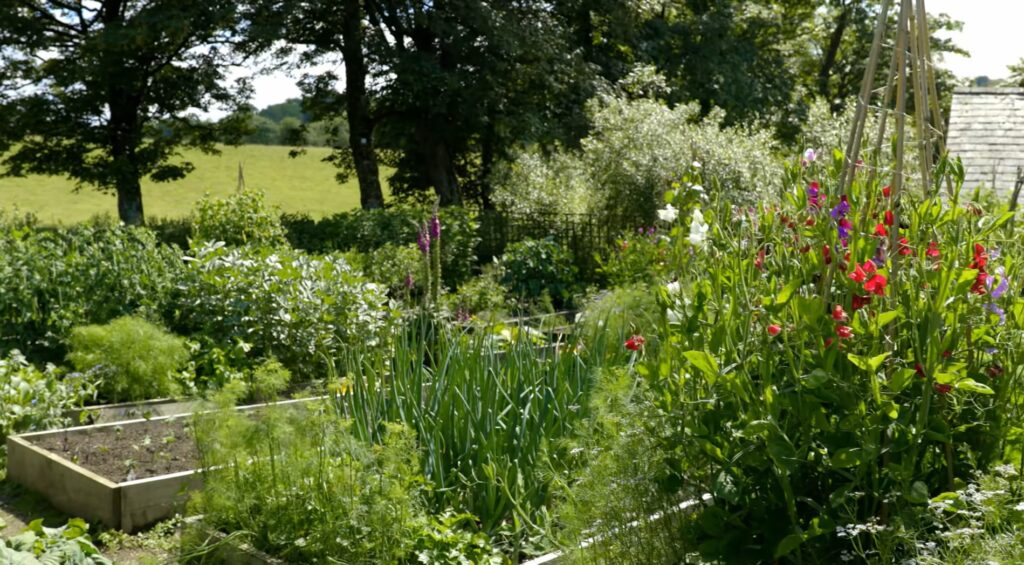Marigolds and basil are effective pest control plants for vegetable gardens. They repel unwanted insects while attracting beneficial pollinators.
Gardeners often face the challenge of pests that threaten their vegetable crops. Integrating pest control plants into your garden is an eco-friendly strategy to protect your veggies without relying on harmful chemicals. These plants can deter pests naturally through their scents or by attracting predator insects that feed on common pests.
By choosing the right companion plants, you not only enhance your garden’s biodiversity but also improve the overall health and yield of your vegetables. This approach aligns with sustainable gardening practices, promoting a balanced ecosystem in your backyard. Remember, a well-planned garden with pest-repelling plants is a proactive step towards a bountiful and healthy harvest.
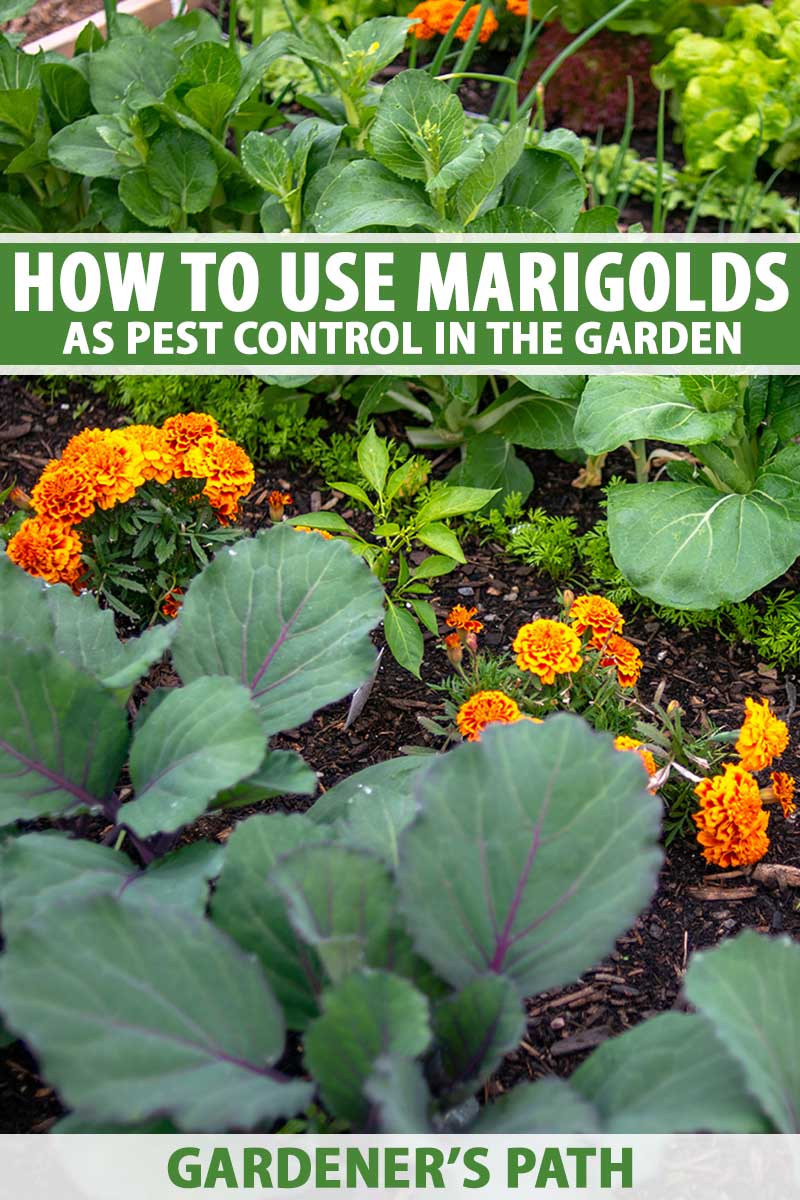
Credit: gardenerspath.com
Companion Planting
Companion Planting is a natural way to enhance your vegetable garden. By placing certain plants together, you can deter pests and improve growth. This method is not only organic but also promotes biodiversity in your garden. Let’s explore how companion planting with pest control plants for vegetable gardens can be a game-changer.
What Is Companion Planting?
Companion planting involves strategically placing plants that benefit each other close together. This practice helps in pest control, pollination, and even providing necessary nutrients. It’s an age-old method that uses nature’s relationships to create a thriving garden.
Examples Of Pest Control Plants For Companion Planting
Choosing the right pest control plants for companion planting can protect your vegetables without harmful chemicals. Here are some examples:
- Marigolds: These bright flowers repel nematodes and other garden pests.
- Basil: This herb is known to keep thrips, flies, and mosquitoes at bay.
- Nasturtiums: They act as a trap crop for aphids, luring them away from vegetables.
- Chives: They can deter aphids and improve the flavor of companion plants.
- Garlic: Known to repel various pests and can improve the health of roses and raspberries.
For a visual guide, see the table below:
| Plant | Pests Repelled | Good Companions |
|---|---|---|
| Marigolds | Nematodes, Whiteflies | Tomatoes, Peppers |
| Basil | Thrips, Flies | Tomatoes, Cabbage |
| Nasturtiums | Aphids | Cucumbers, Radishes |
| Chives | Aphids | Carrots, Tomatoes |
| Garlic | Japanese Beetles, Root Maggots | Raspberries, Roses |

Credit: www.youtube.com
Repellent Plants
Turning to nature for pest control can transform your garden. Repellent plants not only deter pests but also add beauty to your vegetable garden.
Characteristics Of Repellent Plants
Plants with pest-repelling properties share certain traits.
- Strong Scents: Many have potent odors that pests dislike.
- Essential Oils: These plants often contain natural oils that act as insect deterrents.
- Physical Barriers: Some possess structures that make it difficult for pests to navigate.
Effective Pest Control Plants For Repelling Insects
Several plants stand out for their ability to keep pests at bay. Here are a few:
| Plant Name | Pests Repelled |
|---|---|
| Marigolds | Nematodes, aphids, mosquitoes |
| Garlic | Aphids, Japanese beetles, root maggots |
| Basil | Mosquitoes, whiteflies, carrot flies |
| Lavender | Moths, fleas, flies, mosquitoes |
| Chrysanthemums | Roaches, ants, ticks, silverfish |
Integrating these pest control plants for vegetable gardens helps maintain a healthy, thriving garden space.
Attractant Plants
Welcome to the world of Attractant Plants, a natural ally in your quest for a thriving vegetable garden. These plants do more than just grow. They are the secret agents in pest control for vegetable gardens. Let’s discover how these green warriors can safeguard your veggies.
Importance Of Attractant Plants
Attractant plants play a vital role in the garden ecosystem. They lure beneficial insects that act as natural pest deterrents. These plants enhance biodiversity, leading to a more resilient garden.
Plants That Attract Beneficial Insects For Pest Control
A variety of plants can invite insect friends to your garden. Here’s a list of top attractants:
- Marigolds: These bright flowers deter nematodes and attract ladybugs.
- Basil: Its strong scent pulls in hoverflies and repels thrips.
- Yarrow: A magnet for ladybugs and predatory wasps, yarrow is a powerhouse.
- Calendula: Known as pot marigold, it draws in lacewings and hoverflies.
- Dill: This herb beckons beneficial wasps and hoverflies.
| Plant | Beneficial Insect Attracted | Pests Controlled |
|---|---|---|
| Marigolds | Ladybugs | Nematodes |
| Basil | Hoverflies | Thrips |
| Yarrow | Ladybugs, Predatory Wasps | Various Pests |
| Calendula | Lacewings, Hoverflies | Aphids, Whiteflies |
| Dill | Beneficial Wasps, Hoverflies | Caterpillars, Aphids |
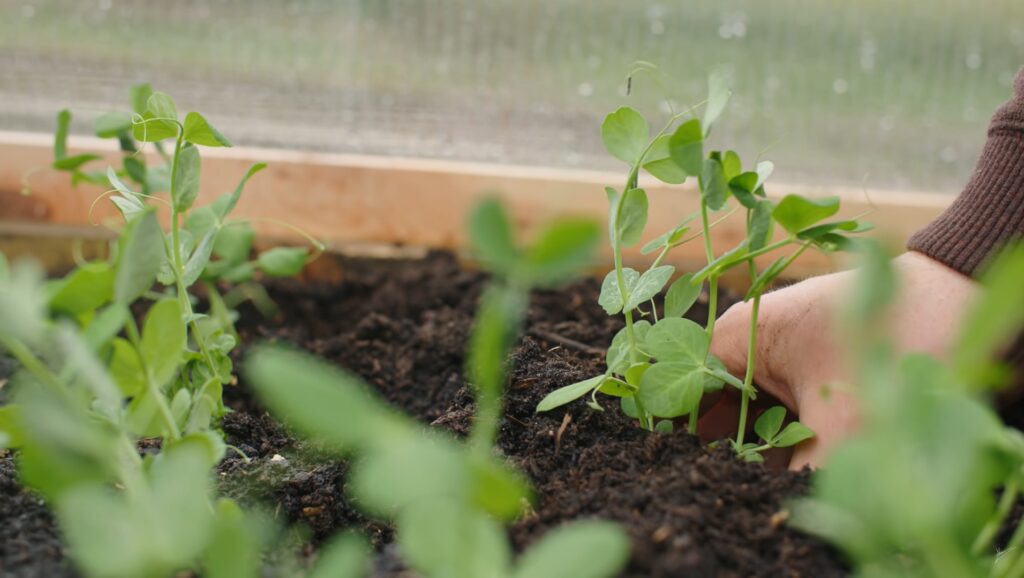
Trap Crops
Imagine your vegetable garden thriving without pesky invaders. Pest control plants for vegetable gardens can make this a reality. One smart strategy is using trap crops. These plants are like secret agents in your garden. They attract pests away from your precious veggies. Let’s dive into how trap crops work and which ones to plant.
Definition Of Trap Crops
Trap crops are plants that attract pests to themselves. They are like a buffet for bugs. These plants keep pests busy and away from your main crops. By doing this, they save your vegetables from damage.
Examples Of Trap Crops For Managing Pests
Different trap crops work for different pests. Here are some examples:
- Nasturtiums – They lure aphids away.
- Marigolds – Nematodes love these flowers.
- Sunflowers – Ants and beetles prefer these tall blooms.
Choose the right trap crops for your garden. They will guard your veggies against unwanted guests. Plant them around or among your main crops for the best effect. With these heroes in place, your vegetable garden will flourish. You’ll enjoy healthy, pest-free produce all season long.
Natural Pesticides
Turning to natural pesticides ensures a healthy vegetable garden. These solutions are safe and effective. They keep pests away without harming the environment. Let’s explore the types and uses of natural pesticides derived from plants.
Types Of Natural Pesticides From Plants
Nature offers a variety of plants that act as natural pesticides. Here are some effective options:
- Marigolds: These flowers repel beetles and nematodes.
- Garlic: Its strong scent drives away aphids and moths.
- Chrysanthemums: They produce pyrethrin, which kills insects.
- Neem: It disrupts the life cycle of pests.
These plants are easy to grow among your vegetables. They protect your crops naturally.
How To Use Plant-based Pesticides In Vegetable Gardens
Using plant-based pesticides is straightforward. Follow these steps:
- Choose the right plants: Select pest control plants that suit your garden’s needs.
- Plant strategically: Place them near vulnerable crops.
- Prepare natural sprays: Use crushed garlic or neem oil mixed with water.
- Apply regularly: Spray your vegetables weekly to keep pests at bay.
This method ensures your vegetables grow healthy and pest-free.
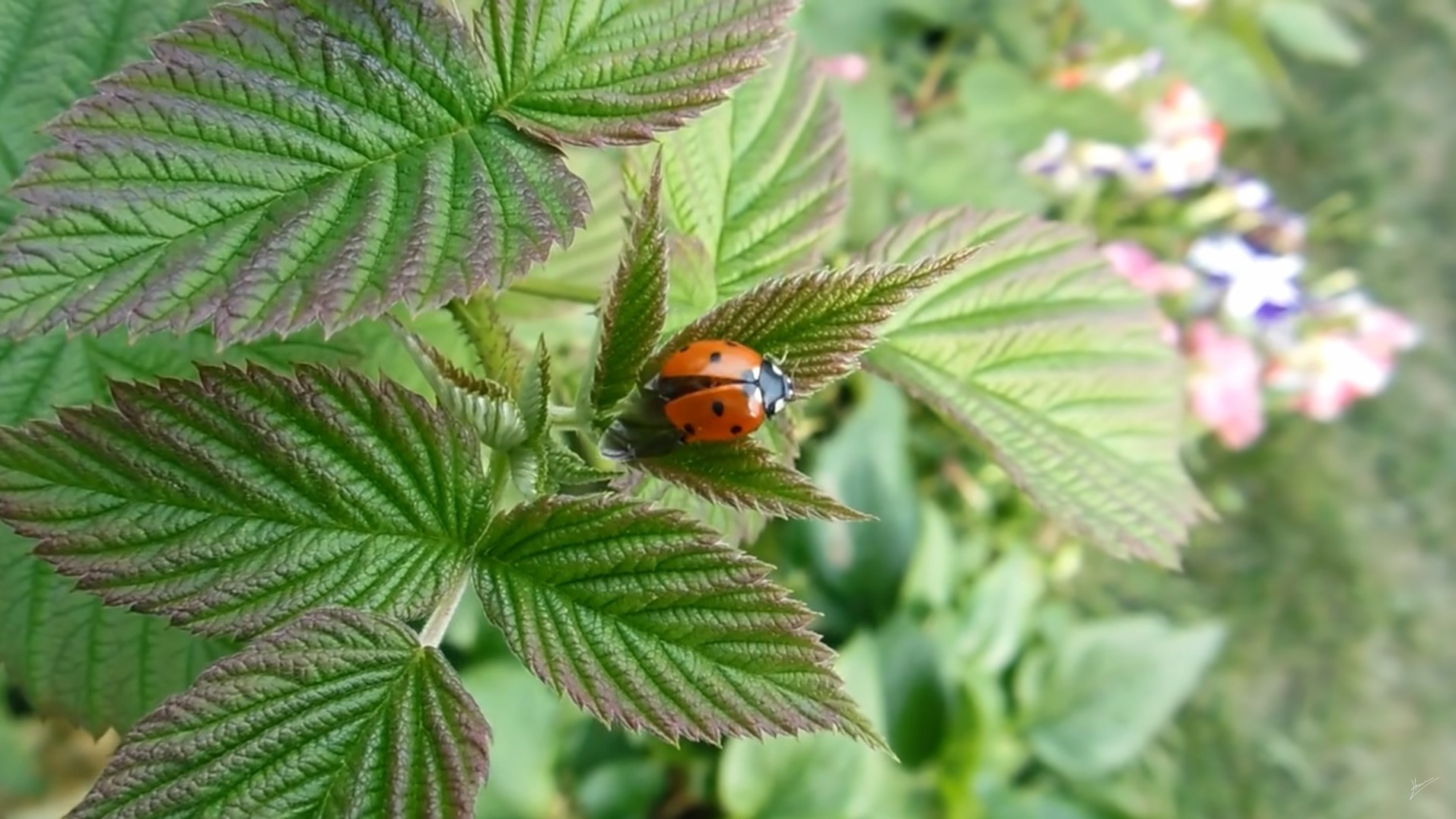
Maintenance And Care
Maintenance and Care are key to ensuring your pest control plants for vegetable gardens thrive and effectively keep pests at bay. With proper upkeep, these plants can create a healthy ecosystem. Let’s explore how to maintain and care for these valuable allies in your garden.
Tips For Maintaining Pest Control Plants
- Water Regularly: Keep soil evenly moist, not waterlogged.
- Prune: Remove dead or infested parts to promote growth.
- Companion Planting: Pair with veggies for mutual benefits.
- Soil Health: Enrich with compost for strong plant foundations.
- Sunlight: Ensure adequate light for photosynthesis and strength.
Common Mistakes To Avoid In Managing Pest Control Plants
| Mistake | Consequence | Prevention |
|---|---|---|
| Overwatering: | Root rot and weakened plants. | Check soil moisture before watering. |
| Ignoring Pests: | Infestation can spread quickly. | Regular inspections and prompt action. |
| Poor Spacing: | Limited airflow, increased disease. | Follow spacing guidelines for plants. |
| Neglecting Soil: | Stunted growth, less resilience. | Add organic matter and nutrients as needed. |
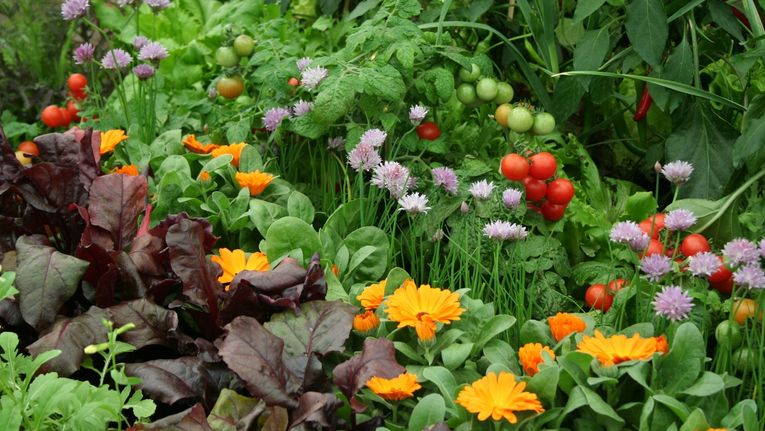
Credit: www.learningwithexperts.com
Frequently Asked Questions
What To Plant With Vegetables To Keep Pests Away?
Plant marigolds, basil, and chives among vegetables to deter pests. These companion plants emit strong scents that repel common garden insects.
What Is The Best Pest Control For Vegetable Gardens?
The best pest control for vegetable gardens involves using neem oil, insecticidal soaps, and diatomaceous earth. These natural remedies deter pests without harming plants. Regularly inspecting plants and removing any visible pests by hand also helps maintain a healthy garden.
What Plant Keeps Bugs Out Of The Garden?
Certain plants like marigolds, lavender, and citronella grass can help repel bugs from gardens. These plants emit scents that deter pests naturally.
How Do I Keep Bugs From Eating My Vegetable Garden?
To protect your vegetable garden from bugs, use natural predators like ladybugs, install barriers such as floating row covers, and apply organic pesticides. Regularly inspect plants for early detection and removal of pests. Maintain healthy soil to strengthen plant defenses against infestations.
What Plants Deter Garden Pests?
Certain plants like marigolds, chives, garlic, and basil act as natural deterrents for garden pests by emitting strong scents or chemicals.
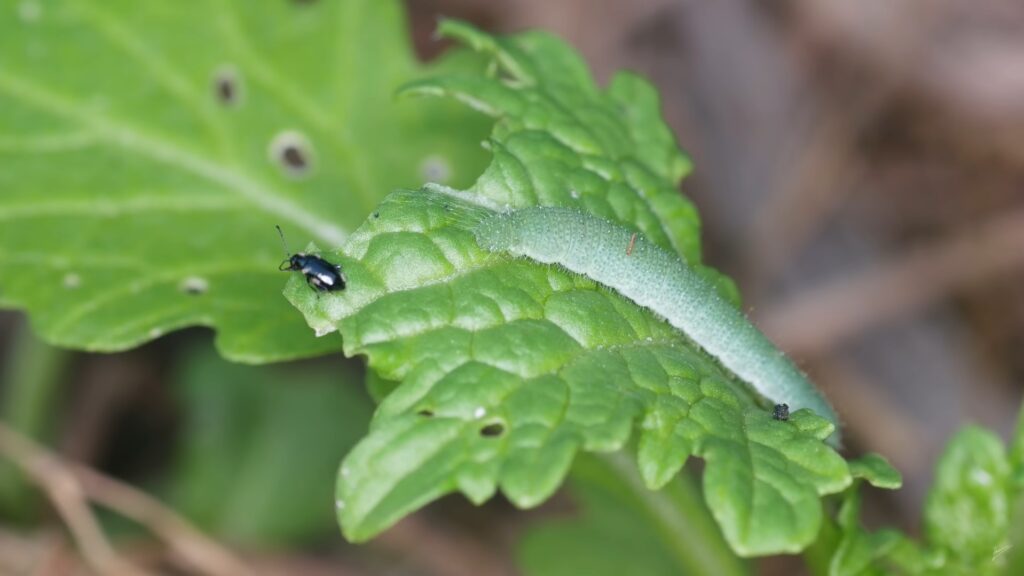
Conclusion
Embracing nature’s bounty by incorporating pest control plants into your vegetable garden is both smart and sustainable. These botanical protectors not only safeguard your veggies but also enhance garden biodiversity. Start planting these natural defenders today to cultivate a healthier, more resilient garden.
Happy gardening!

